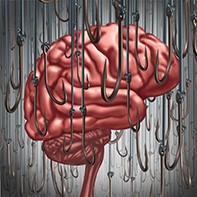Treatment of patients with opioid dependence
The prevalence of opioid dependence is growing in Australia with the increased use of pharmaceutical opioids. A number of effective interventions exist for patients with opioid dependence, including withdrawal services, opioid substitution treatment and psychosocial interventions, supported by self-help groups and harm-reduction services.
Opioid dependence is a chronic relapsing condition that affects approximately 1% of the Australian adult population. It is characterised by regular opioid use, tolerance, impaired control over use, persistent use despite related harms, a characteristic withdrawal syndrome and relapse on attempts at stopping or reducing opioid use. Opioid dependence has historically been linked to illicit heroin use. However, over the past 15 years in Australia there has been a marked increase in the use of pharmaceutical opioids, both prescribed and over the counter, usually in the context of chronic pain. This has been associated with an increase in the numbers of individuals who develop opioid dependence and require management of that dependence in addition to any concomitant medical conditions (e.g. chronic pain or depression).

